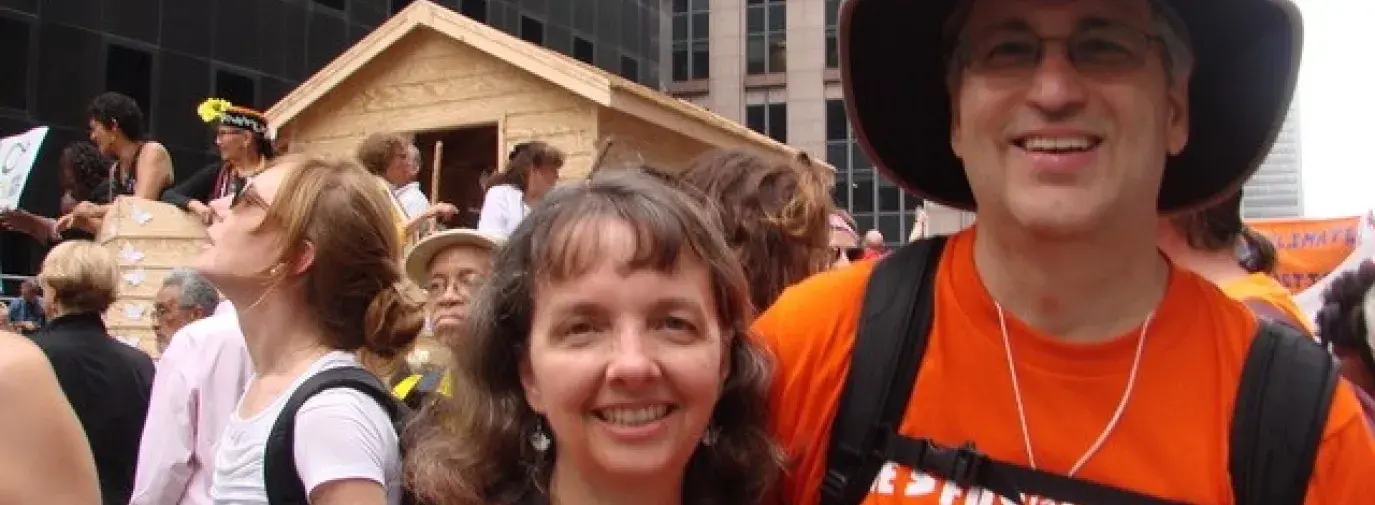
Karen Bearden compares greening her money to a waterfall: one act of socially responsible investing (SRI) was like a drop of water that led to a cascade.
She became a Green America member back in 2005. After reading about SRI in our publications, she and her husband Joe moved some of their investments into a Pax World socially responsible mutual fund that year.
That one act led to another and yet another. They found a socially responsible financial advisor and started screening their investments with his help. In 2010, the Beardens broke up with Bank of America in favor of a local credit union, and cut up their mega-bank credit cards, choosing a card from their credit union and the Green America VISA instead.
Today, the Beardens are still invested in Pax World Funds, along with Green Century Funds and Domini Social Funds. Karen screens their individual stock holdings, with her advisor’s help, to ensure that they don’t include fossil fuels or firearms. She also pays special attention to including renewable energy companies.
The investments, she says, have paid off: “Many of our SRIs perform equal to conventional investments,” she says, noting that those that don’t are close. Plus, she says, “we know we’re investing in and supporting better companies. Those investments will pay off more in the future as we move toward more sustainable ways in the world.”
When the Beardens receive shareholder proxy ballots, for companies in which they own stock, they always vote in favor of social and environmental shareholder proposals. Karen says she’s also brought Green America publications to her financial advisor to explain to him their values of social responsibility.
In addition, Karen has been active in the fossil-fuel divestment movement. In 2009, she started volunteering with 350.org. After seeing the hardships that the Standing Rock Sioux faced in fighting the Dakota Access Pipeline, she helped 350.org organize activists in her area to persuade the cities of Raleigh, Durham, and Chapel Hill to divest from Wells Fargo, a bank that has loans supporting the pipeline.
“It’s important to me to not be investing in corporations that are destroying the Earth and hurting people and hurting our food system,” says Karen. “Everything is connected.”







